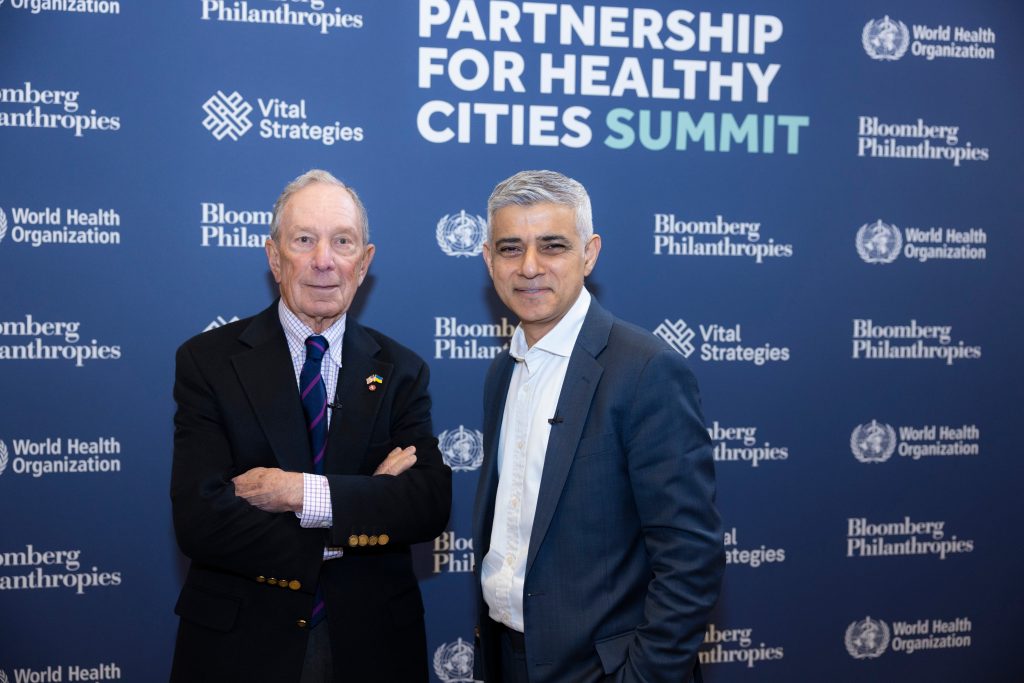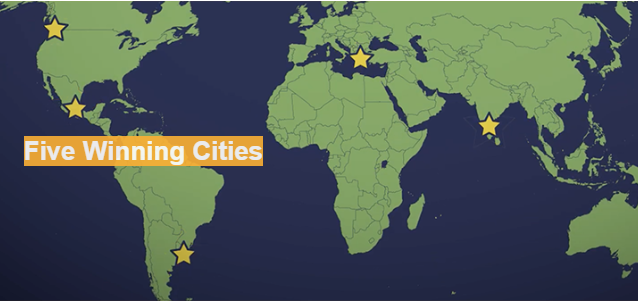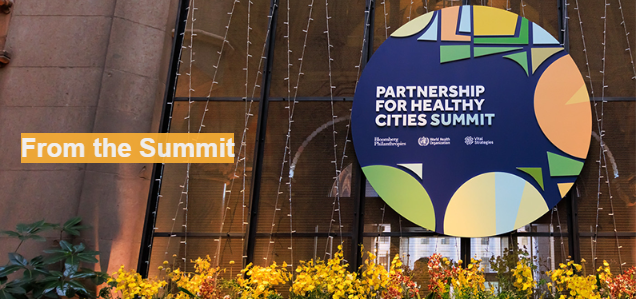This week in London, mayors and leaders from more than 50 major cities came together to make the world a healthier place. As part of the first-ever Partnership for Healthy Cities Summit, they gathered to share ideas and build networks that can help save and improve millions of lives.
And they’re coming together at a critical moment for public health in global cities.
Today, for the first time in history, more than half of the world’s population lives in urban settings. At the same time, more than 80% of deaths around the world are caused by non-communicable diseases (NCDs) and injuries — health challenges like strokes, heart disease, diabetes, traffic accidents, and overdoses.

For many NCDs and injuries, urban conditions can increase or decrease risk factors, which makes cities into frontlines for public health — and proving grounds for creative solutions.
The Partnership for Healthy Cities was founded in 2017 with support from Bloomberg Philanthropies, the World Health Organization, and Vital Strategies, with a goal of enabling cities around the world to build and share high-impact public health policies and programs. The network of 70 cities covers more than 300 million people globally, with each city receiving support to solve a specific public health issue.
The network played an important role during the COVID-19 pandemic, when city leaders could connect and communicate their responses to the public health emergency. As Mike and Mayor Khan write, “the outbreak inspired a level of coordination and cooperation previously unseen between cities, as mayors, governors and municipal leaders looked less to national governments for guidance and support than to each other.”
Now cities have a chance to expand on the connections made during the pandemic to address other deadly challenges. Read more.

At the Summit, five cities were recognized for their work to advance creative public health solutions on overdoses, tobacco control, food policy, road safety, and data accessibility that can also be put into practice in other cities around the world.
The five winning cities, who will each receive additional funding to further their work with the partnership, are:
Athens, Greece for increasing access to the opioid overdose reversal agent, naloxone, at community-based organizations and among healthcare professionals. The city also started researching causes of death among people who inject drugs to better understand the impact of the overdose crisis.
Bengaluru, India for their efforts in tobacco control, specifically, reducing smoking in public places and improving compliance with existing mandates on public smoking bans.
Mexico City, Mexico for improving road safety and safe and active mobility by launching a bike path on a busy road that led to a 275% increase in cyclists; implementing a shared lane for cyclists and buses separate from cars; establishing loading and unloading areas; and optimizing design and management of roads close to schools.
Montevideo, Uruguay for establishing nutritional standards for the preparation and sale of food in government agency offices and some public universities, for focusing on sodium reduction policies and developing media campaigns and educational materials.
Vancouver, Canada for making public health data more inclusive and accessible by launching an online public health data tool that tracks population health indicators and working with urban Indigenous communities to better inform data management.

Watch the full Summit plenary session, or view individual speeches and panel discussions, including Mike’s remarks and presentation of the awards, a conversation with London Mayor Sadiq Khan, video remarks from WHO Director General Dr. Tedros Adhanom Ghebreyesus, and more.
In addition to supporting the Partnership for Healthy Cities, Bloomberg Philanthropies has a number of programs to address the non-communicable diseases and injuries that claim far too many lives. Learn more: